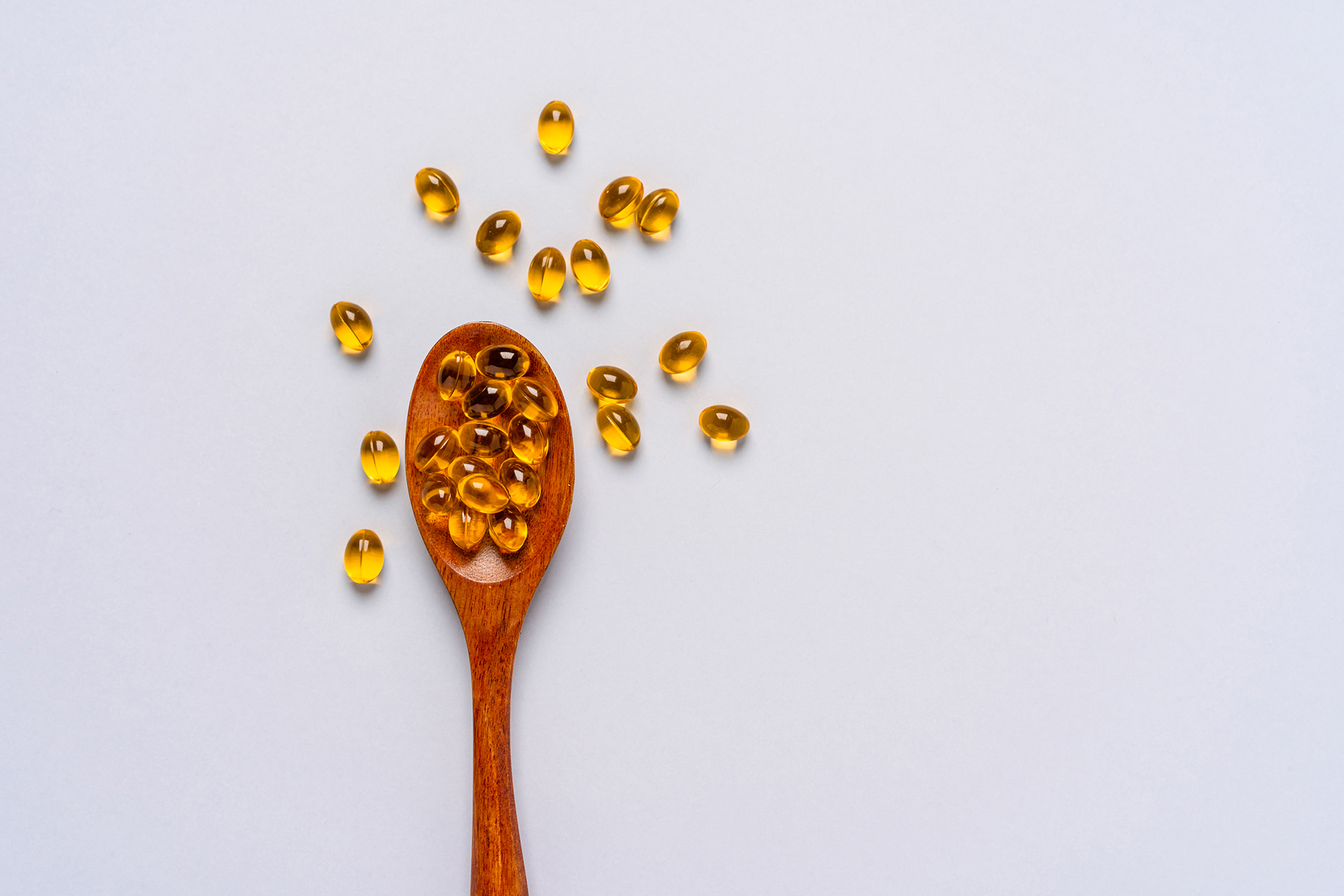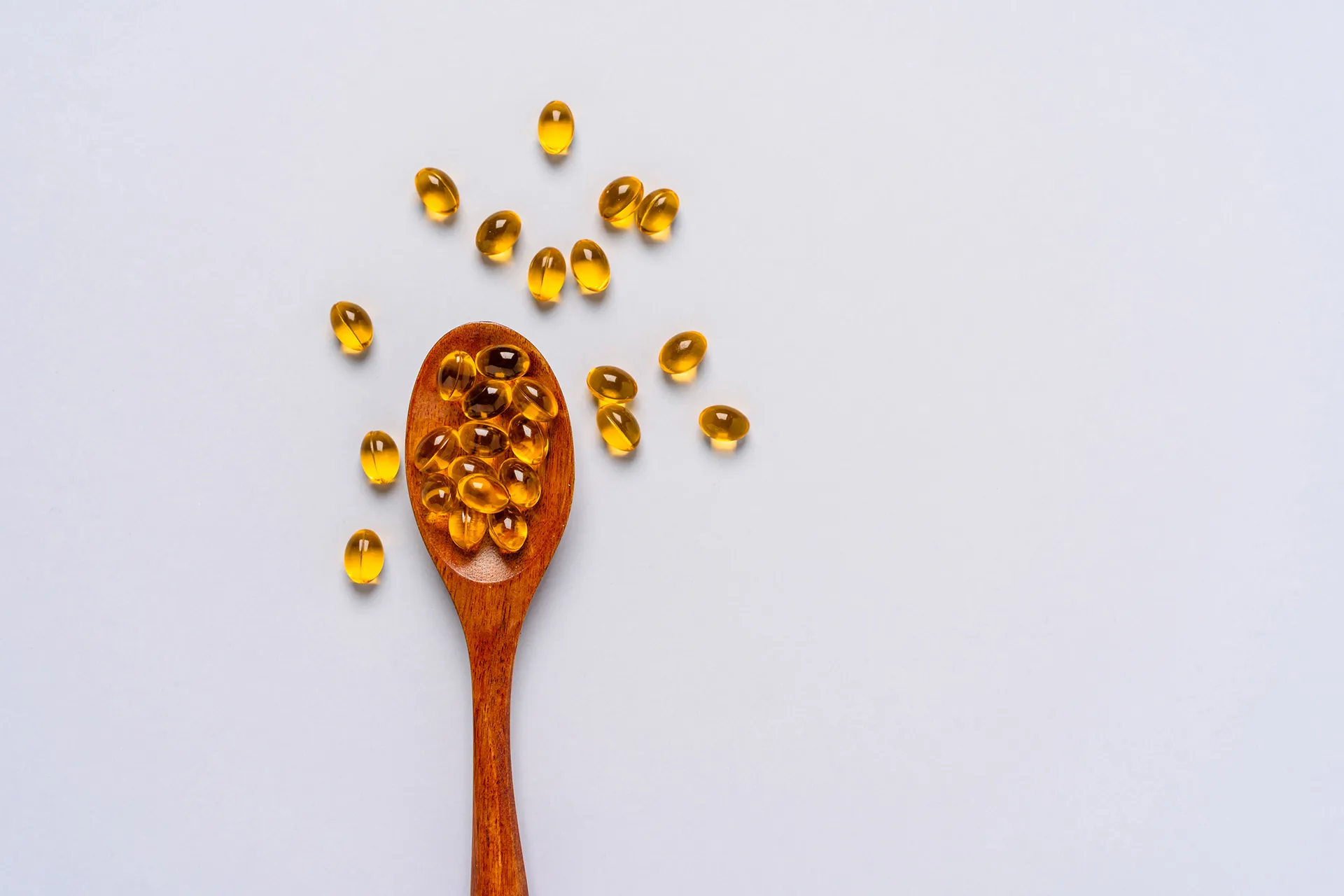General Health | 5 min read
Major Vitamin D Supplements to Boost Immunity System
Medically reviewed by
Table of Content
Key Takeaways
- The recommended daily intake of vitamin D is 800 IU per day
- Vitamin D can be supplemented with natural as well as fortified food sources
- Take oral supplements or intramuscular injection for low levels of vitamin D
Vitamin D is fat-soluble and contrary to popular belief, you do not get vitamin D from the sun. Rather, it is produced in your skin as response to sunlight received, which is why it is also referred to as the sunshine vitamin. There are also a very limited number of vitamin D rich foods that we consume.That's why we need vitamin D supplements to boost immunity.
Vitamin D is divided into two components: vitamin D2 or ergocalciferol, and vitamin D3 or cholecalciferol. Vitamin D3 is only found in foods with an animal source, while D2 is mainly found in either foods that are fortified with it or via plant sources.
The recommended daily intake (RDI) for vitamin D is 400–800 international units (IU). Children, teens and adults up to the age of 70 should receive 600 IUs, while adults over the age of 70 require a minimum of 800 IUs.
Vitamin D supplements
It is important to note that unlike vitamin C, there are no vitamin D vegetables and fruits.
Some of the Vitamin D supplements and sources include:
1. Seafood and fatty fish
At the top of the list of vitamin D3 foods are these fatty fish and seafood such as salmon, tuna, herring, sardines, mackerel, oysters, and shrimp.
2. Fortified foods
As there aren’t many naturally-occurring vitamin D foods, certain items are often fortified with this vitamin –meaning vitamin D has purposefully been added to them. These vitamin D containing foods include cow’s milk, cheese, cereals, yogurts and curd, plant-based milk alternatives such as soy and almond milks, and tofu. There are also no vitamin D fruits in nature, but orange juice is often fortified with it as well.
3. Egg yolks
While many tend to avoid the yellow or yolk of the egg, it is this part that is actually one of the best vitamin D sources around. Eggs from free-range or pasture-raised chickens tend to offer more vitamin D.
4. Cod liver oil
This is a good alternative if you don’t enjoy consuming fish directly. Cod liver oil is available in capsule form and is well-known vitamin D supplement, that is also rich in vitamin A and omega-3 fatty acids.
5. Mushrooms
There are no vitamin D vegetables except mushrooms, which are the only naturally-available vegetarian source of this vitamin. Interestingly, just like humans, mushrooms also produce their own vitamin D when exposed to UV light.
6. Doctor-prescribed supplements
Most doctors recommend vitamin D deficiency treatment with oral supplements or intramuscular injections. For those with very low levels, a cholecalciferol or D3 injection of 6,00,000 IU is advised and is usually given once a year. This is often followed up with oral supplements as per prescriptions from your doctor. If your levels are not extremely low, your doctor may only advise oral supplements to be taken once a week for about 8-12 weeks.
Some of the oral Vitamin D supplements available in the Indian market are:
- Calcigen Vitamin D3 (60000 IU) by Cadila Pharmaceuticals
- Uprise-D3 60K Capsule by Alkem Laboratories
- Depura Vitamin D3 60000IU Oral Solution Sugar Free by Sanofi India
- Arachitol Nano Bottle Oral Solution by Abbott
- Calcirol by Cadila Pharma
- Caldikind sachet by Mankind
- D-Shine by Akumentis Healthcare
- Vitanova by Zuventus Healthcare
Benefits of vitamin D3
The health benefits of vitamin D are many. Let’s take a look at some of these vitamin D uses in the human body:
- Vitamin D helps the body fight certain diseases
- It plays a key role in the growth and development of your teeth and bones
- It helps in better absorption of calcium and phosphorus
- Vitamin D can help regulate your overall mood
- It can ward off symptoms of depression and anxiety
- Vitamin D helps boost your immunity
- It can reduce chronic muscle pains
- It helps in weight loss and decreasing body fat
- Vitamin D can help inhibit the growth of cancer cells
- It helps in preventing cardiovascular disease
- It cuts your risk of developing diabetes
- It can help prevent upper respiratory infections
Vitamin D deficiency symptoms
It is difficult to receive the prescribed amount of vitamin D daily from the sun, due to which Vitamin D deficiency is a common condition across the world. In fact, it is estimated that approximately 1 billion people around the globe have low levels of the vitamin.
To remedy this, ensure you get a good amount of sunshine between 11 am and 2 pm, preferably without sunscreen. Your skin has a specific type of cholesterol that when exposed to the sun’s UVB radiation converts into vitamin D.
A vitamin D deficiency can show symptoms such as:
- Low immunity, frequent coughs and colds
- Chronic fatigue
- Frequent headaches
- Fractures and falls
- Periodontal disease
- Muscle pains
- Joint pains
- Hypertension
- Slow healing of wounds
- Hair loss
- Asthma
- Recurring infections
- Rickets in children
- Osteoporosis in the elderly
- Osteomalacia (soft bones)
What is the correlation between calcium and Vitamin D?
Not many know that calcium and vitamin D3 in fact, work hand-in-hand to protect the health of your bones. While calcium works to build and maintain bones, it is the role of vitamin D to assist your body in effectively absorbing this calcium. Whether you’re consuming the required amount of calcium for your body is thus not enough, as it could be futile if you have a vitamin D deficiency. For this reason, many calcium supplements also have vitamin D in them that aid in absorption.
Conclusion
It is important to remember not to consume any oral supplement without a consultation and prescription from your doctor. Access general physicians and diagnostic centres where you can check your vitamin D levels on Bajaj Finserv Health. With this app, you can book appointments in person and schedule video consultations as well. Explore its range of features and health plans that offer you discounts from leading hospitals, clinics and labs.
References
- https://www.aafp.org/afp/2009/1015/p841.html
- https://www.tandfonline.com/doi/full/10.4161/derm.23873
Disclaimer
Please note that this article is solely meant for informational purposes and Bajaj Finserv Health Limited (“BFHL”) does not shoulder any responsibility of the views/advice/information expressed/given by the writer/reviewer/originator. This article should not be considered as a substitute for any medical advice, diagnosis or treatment. Always consult with your trusted physician/qualified healthcare professional to evaluate your medical condition. The above article has been reviewed by a qualified doctor and BFHL is not responsible for any damages for any information or services provided by any third party.






